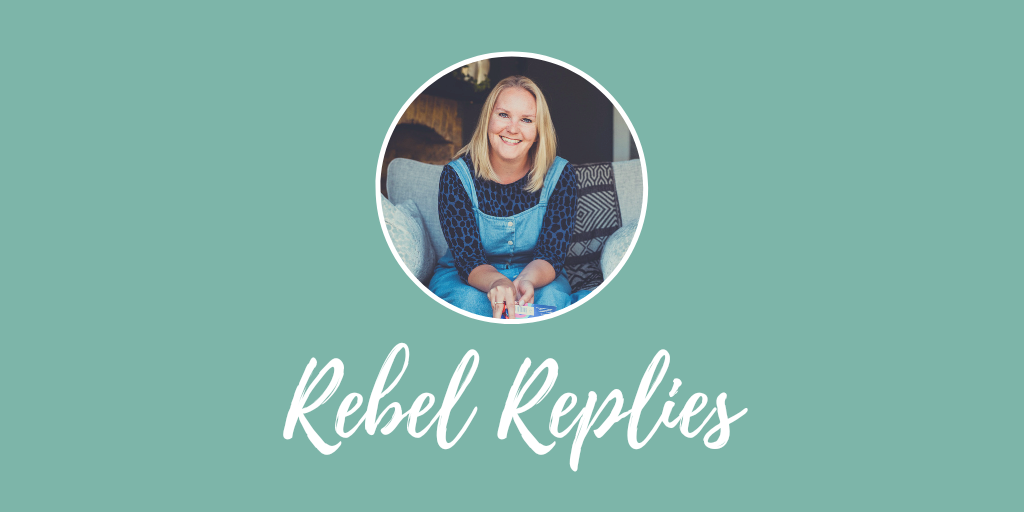
Julia Davies is a life and business coach based in Worthing, Sussex. In a broken society that rewards toxic productivity and hustle, Julia is a quiet rebel. She believes instead that a successful business is built on listening to our own intuition. She supports women who dare to forge their own path in life and business
Here, she answers your questions on life and business when you are self-employed, from the perspective of a quiet rebel. Today’s question is from a small business owner who has recognised that she’s over-committed herself at work:
I’m over capacity. How can I work well? To give you some context, once the next couple of weeks are done I’ll be back on an even keel, but with a very high workload under contract for at least the next 6 months. I can’t take things off my plate.
Thanks so much for writing in! Obviously the ideal is to not get to the stage where you’re over capacity, but in reality stuff happens and we need ways of coping in the short term. It’s important to recognise when you need to shift into the “coping” phase, because at that point you can put things into place to support yourself. Without that self-awareness of what’s a normal workload for you, you can end up with too much on your plate in the long term and no strategies to cope.
There are two prongs to dealing with an “over-capacity” situation: coping strategies to help you work well in the short term and making-sure-it’s-only-a-short-term-thing strategies.
Making long-term plans that suit your way of working
As a rebel I’d always encourage you to block out the noise from social media etc about how everyone else is running their businesses and how they work day to day. Get to know yourself and figure out when you work best (if you’re a night owl, don’t get up at 5am to experience a “miracle morning”!). Work out that delicate balance between finances and wellbeing/fun (how much work you NEED to take onto cover your bills vs how much you WANT to take on so that you can live the lifestyle you want). Work out whether you prefer longer relationships with clients or shorter snappier projects.
Once you know what YOU want and need, it’s much easier to say yes to the things that meet those requirements and, importantly, say no to the work that doesn’t. You currently know you’re over capacity for the next few months, so you’ve already done a lot of this work. The challenge now is to not let your current busy situation become your new normal. While you are in this busy period, you’ll be simultaneously making work plans for afterwards, so make sure you are clear in your mind what you want “afterwards” to look like – and stick to it!
How can you work well when you’re over capacity?
Many things come to mind to help you work well over the next few months. Pick and choose what you need – ask yourself each day (my favourite question) “What do you need?”.
Self-care
Think of those days when you don’t sleep well, you eat crap, you skip exercise because you’re tired – these are not the days when you do your best work. You’ll likely spend all day doing something that might take you a couple of hours when functioning at your best. We’ve all been there.
Self-care is top of the list for a reason. Your brain will tell you that you don’t have time to practise self-care. But self-care doesn’t have to take much time, and it will help you show up at work at your best. Self-care MUST be your priority – if you don’t take care of yourself, your work will suffer.
Self-care looks different to everyone. For me, loading the freezer with batch-cooked dinners is self-care. Leaving my desk to go for a walk when I’m feeling foggy (instead of powering through, which never works) is self-care. When possible, planning work things according to my cycle is self-care. What has worked for you in the past?
Rest
Again, your brain will constantly tell you that you have no time to rest. But get into the habit of knowing when your work will actually benefit from taking time away from your desk. Often things will take 4h on a Friday afternoon that will take you 45 minutes on a Monday morning when you’re feeling rested and focused. A mantra of mine that I have borrowed from the amazing Kate Northrup is “Body first, business second”. If you don’t take care of your body with sufficient rest, your body will decide for you when it needs rest – this is burnout. Even when you’re busy, this applies.
Also regarding rest, once this busy period is over, can you book in some recovery time? That could mean a week off or it could mean 3 months working at 75% capacity. Decide now before you overbook yourself in the long term.
Radical prioritisation
This is a biggie, and I use the word radical here as a reminder that it might not be immediately obvious which ball you can drop. It sounds from your letter that you won’t be able to drop any work responsibilities, so this might apply mostly to your personal life. An example might be having just one family zoom and one friend zoom a week or limiting them to weekends to preserve your energy.
Ask for help
Where can you call in some help? It could be paid help or help from those around you in your community. Could your partner to take on certain household chores for a while? Do you need a cleaner? Perhaps you need your sister to buy birthday presents for your parents and send you an invoice?! For every task you do, question whether it needs to be YOU doing it or whether you could temporarily loosen control over it.
Consider where you can give 90% instead of 110%
Over-achieving is a habit for many of us. Both in work and in life. This isn’t about delivery poor quality work, this is about (where appropriate) delivering what you have been asked for. Sometimes we want to impress clients, and that’s totally valid, but sometimes we are doing ourselves a disservice by delivering far more than we have been contracted to.
In life, perhaps there’s a bakery that could supply your sourdough bread instead of taking time to make your own, for example. Think about where your time is being used currently – how could you make life easier for yourself? Our brains naturally choose complexity, so look for ease intentionally.
Quick practical tips for working well day to day
- Pomodoro method: work for 25 mins then break for 5, then repeat. Adapt to suit your own working style!
- Forest app: prevent your phone from distracting you – this app grows trees as you work
- Coworking with others on zoom: the accountability can be super helpful!
- As above, eat well and move your body every day. Nourishing your body and mind is the best business advice I’ve got!
QUESTIONS FOR A QUIET MOMENT
If you’re struggling with this too, here are some questions for you to consider. Maybe you’ll discuss these with a business buddy. Maybe you’ll use them as journal prompts. Or maybe you’ll take the questions on a walk. What matters is spending the time getting clear on your own thoughts, and then taking action. As cheesy as it sounds, nothing will change if you change nothing.
- Where could you ask for help?
- Where might you be over-delivering, in life or business?
- What helps you work at your best?
- How can you ensure this busy period is finite and doesn’t become your new normal?
Do you repeatedly over-book your time? If you ALWAYS feel busy and constantly wonder when you’ll be able to spend having fun or time taking care of yourself without feeling guilty about your lengthy to do list, book a discovery call to chat about how I could support you.
If you’d like to submit a question, sign up to my email “The Rebel Review” where I regularly share opportunities with my community.
The form you have selected does not exist.

